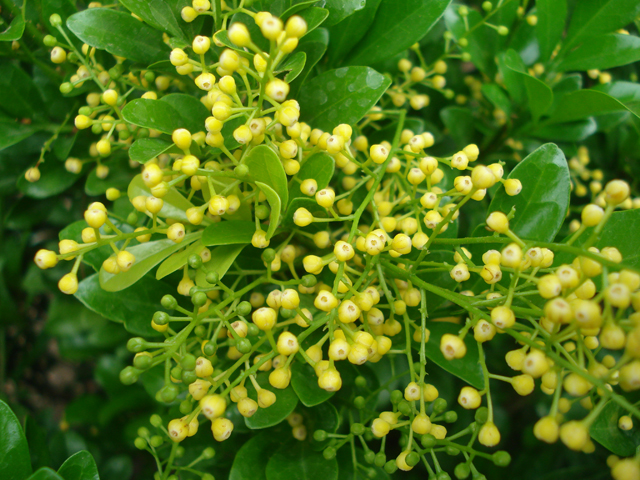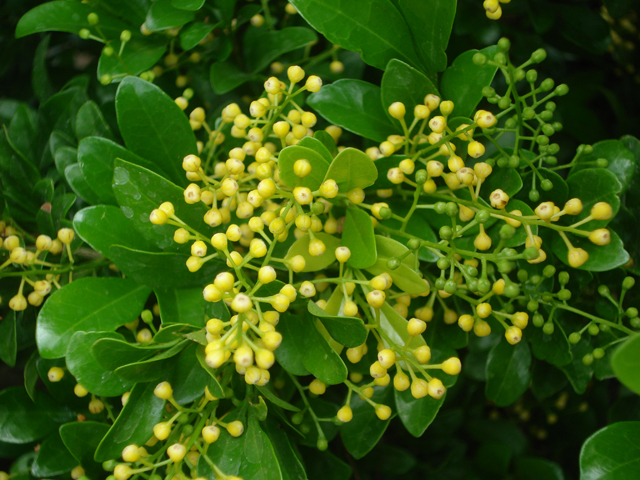
Aglaia odorata Lour.(Meliaceae)
Shrubs or small trees, much branching. Young branches apically with stellate or lepidote trichomes. Leaves 5-12(-16) cm; petiole and rachis narrowly winged; leaflets 3-7(or 9), opposite; leaflet blades usually obovate, sometimes elliptic, 1-7(-11) ¡Á 0.5-3.5(-5) cm with apical one biggest, both surfaces glabrous, secondary veins 8 on each side of midvein, very slender, and ¡À prominent on both surfaces, base cuneate, apex obtuse. Thyrses axillary, 5-10 cm, lax, glabrous.
Flowers fragrant, ca. 2 mm in diam. Pedicel of male flowers 1.5-3 mm, slender. Pedicel of female flowers short and thick. Calyx 5-lobed, lobes round. Petals 5, yellow, oblong to suborbicular, 1.5-2 mm, apex rounded to truncate. Staminal tube slightly shorter than petals, obovoid to subcampanulate, outside glabrous, apical margin entire or lobed; anthers 5, ovoid, included. Ovary ovoid, densely covered with yellow trichomes. |


Fruit indehiscent, ovoid to subglobose, 1-1.2 cm, scattered stellate lepidote but glabrescent. Seeds with a fleshy aril. Fl. May-Dec, fr. Jul-Mar. This species is also cultivated in Anhui, Fujian, Guizhou, Henan, Sichuan, Taiwan, Yunnan, and Zhejiang. Sparse forests or thickets in mountainous regions; low elevations. Guangdong, Guangxi, Hainan [Cambodia, Laos, Thailand, Vietnam. |
